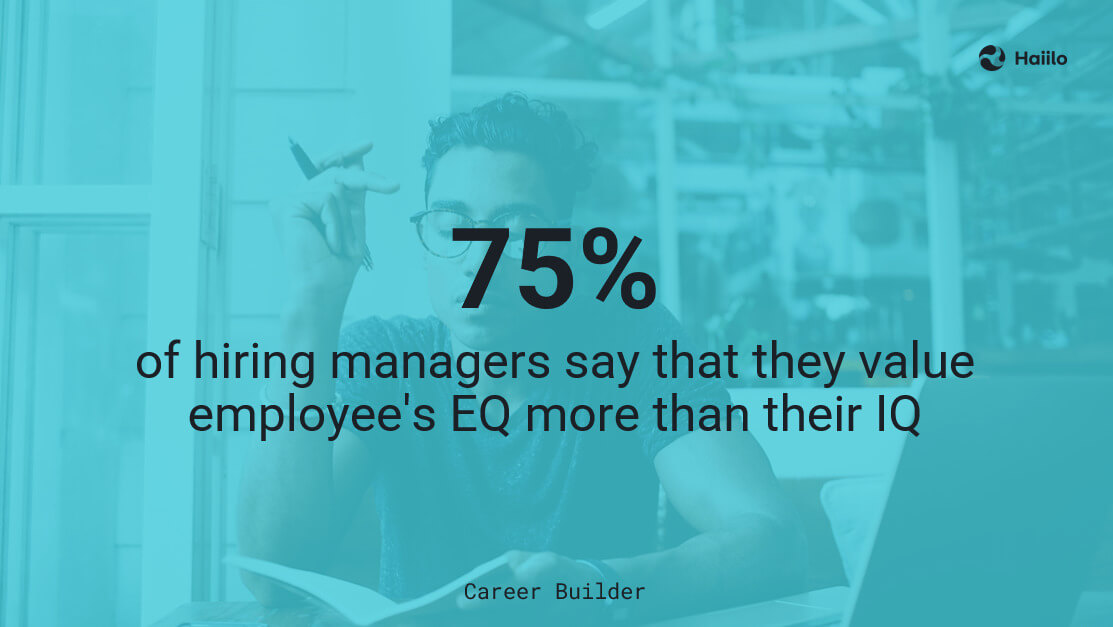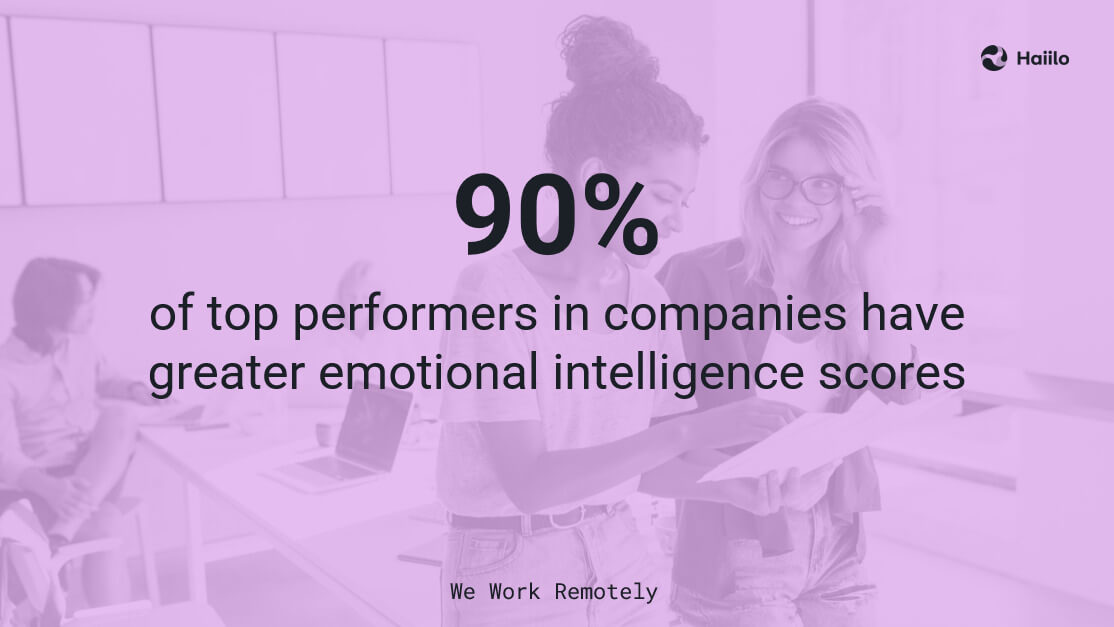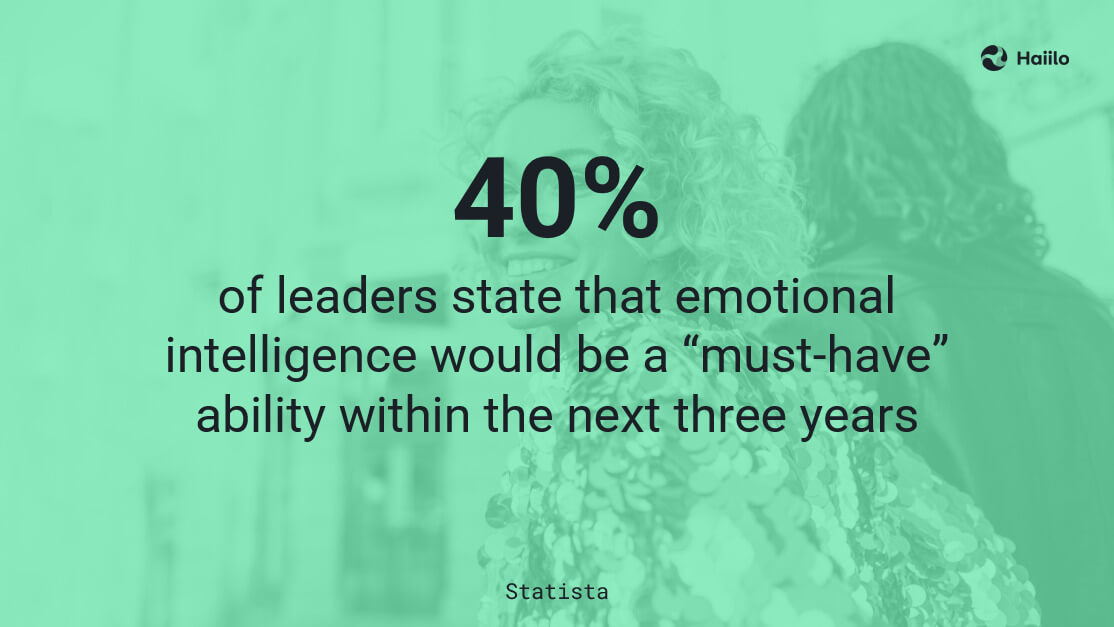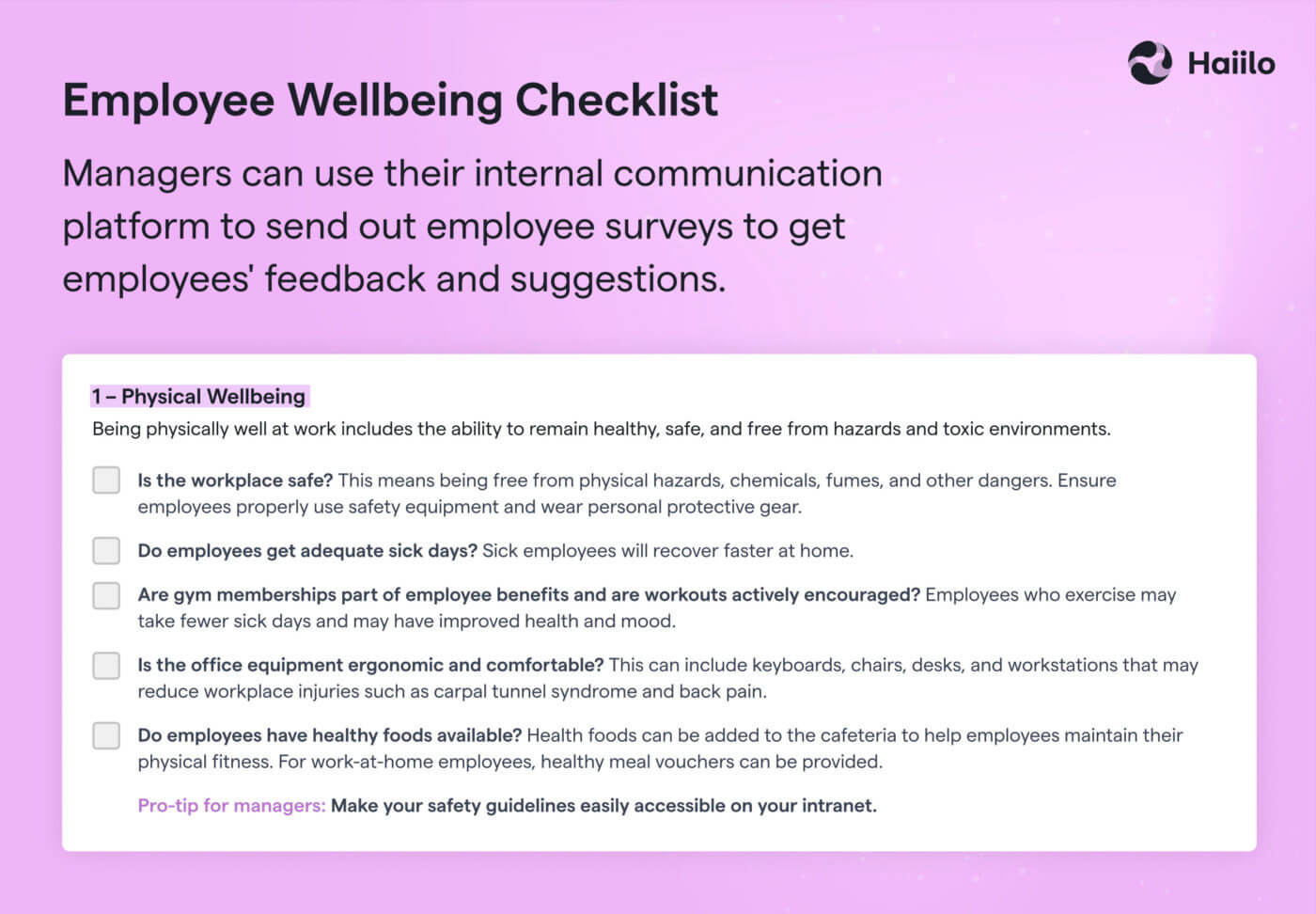Emotional intelligence in the workplace is important for employee satisfaction, productivity, and the overall employee experience at work.
The term EQ was defined as the ability to understand and manage your own emotions, as well as recognize and influence the emotions of those around you. The term was first coined in 1990 by researchers John Mayer and Peter Salovey, but was later popularized by psychologist Daniel Goleman.
Higher emotional intelligence helps employees make better decisions, solve problems, and communicate with others more efficiently. Hence, emotional competencies play a particularly important role in the workplace, which is why this concept attracted the attention of human resource professionals and other business leaders.
In a survey of hiring managers, almost 75% of respondents suggested that they valued an employee’s EQ more than their IQ.

This is because emotional intelligence is widely recognized as a valuable skill that helps improve communication in the workplace, leadership, problem-solving, and relationships among peers.
Let’s now take a deep dive into the importance of emotional intelligence in the workplace.
1. Increased Job Satisfaction and Employee Experience
According to research, employees’ EQ is positively related to engagement dimensions (vigor, dedication, and absorption) as well as overall job satisfaction.
On the contrary, employees with lower emotional intelligence are likelier to be unhappy at work and less loyal to their employers.
The main reason emotionally intelligent employees have a better overall employee experience is that they are great at self-motivation.
Emotionally intelligent people are motivated to achieve their goals and objectives. They go the extra mile to achieve them and can identify and manage their behaviors and feelings to achieve long-term success. Some professionals believe that higher job satisfaction is related to the ability of employees with high emotional intelligence to respond more effectively to workplace stress.
Another academic research found that five dimensions of emotional intelligence such as managing relations, emotional stability, self-development, integrity, and altruistic behavior, were found significant predictors of job satisfaction. Therefore, it is imperative to concentrate on those practices that promote emotional intelligence in the workplace.
Improve your employees’ experience with Haiilo communications platform.
2. Higher Employee Productivity
Excellent research about the importance of emotional intelligence in the workplace proved that employees with high EQ are more likely to be successful at their jobs. Here are a few powerful stats that prove that:
- Even though one may think that IQ is more important than EQ, a study from UC Berkeley determined that emotional intelligence was four times better at predicting a person’s success than measuring IQ.
- On average, people with higher emotional intelligence earn $29,000 more than those with low emotional intelligence.
- After a Motorola manufacturing site implemented stress management and EQ training, employee productivity improved by 93%.
- 90% of top performers in companies have greater emotional intelligence scores.
- A study by PepsiCo found that managers with stronger emotional intelligence outperformed their annual revenue goals by up to 20%.

As more organizations understand the importance of emotional intelligence, it has become increasingly essential for people to develop or learn the characteristics of someone with a high EQ score.
3. Better Stress Management and Employee Wellbeing
Many experts believe that emotional intelligence is the secret to managing stress in both private and professional life.
The workplace can be a volatile environment where employees are tasked to cope with stress, pressure, and anxiety. All of these factors can play a role in how someone feels and deals with emotions, and they directly impact employee well-being in the workplace. The way employees manage those feelings indicates their level of emotional intelligence (EQ).
As mentioned earlier, self-awareness is an important characteristic of employees with high emotional intelligence. The ones who are not self-aware are less likely to deal with stressful situations at work properly.
According to research by organizational psychologist Tasha Eurich, 95% of people think they’re self-aware, but only 10 to 15% actually are.
4. Improved Workplace Collaboration and Communication
Emotionally intelligent people have certain characteristics, and all of them directly impact the quality of collaboration and communication in the workplace.
These four core competencies include self-awareness, self-management, social awareness or social skills, and relationship management.
Self-awareness helps people understand their emotions and communicate them properly to others, resulting in improved communication. They are great listeners and always take other opinions into consideration, enabling them to successfully work in groups and collaborate on team and cross-functional projects. Working with colleagues who aren’t self-aware can cut a team’s success in half and, according to previously mentioned Eurich’s research.
Self-management refers to the ability to manage emotions, particularly in stressful situations and during hard times. Employees and leaders who lack self-management tend to react and have a harder time keeping their impulses in check, directly impacting the team’s ability to collaborate efficiently.
Furthermore, people with strong social awareness practice empathy, and empathetic leadership can go a long way in driving their team’s success and productivity. They always strive to understand their colleagues’ feelings and perspectives, which enables them to communicate and collaborate more effectively with their peers.
📹 Before we move forward, check out our Masterclass about how to eliminate communication barriers in your workplace!
5. Positive Company Culture and More Innovation
People with high emotional intelligence are, in general, happier people, and they are more engaged in their work. Consequently, they spread positive vibes to people around them, impacting the overall company culture.
According to a report published by Harvard Business Review, emotionally intelligent companies are uniquely better at engaging and empowering their workforces, building purpose-driven cultures, and facilitating the cultivation of interpersonal skills that allow employees to “develop innovative solutions on their own.”
Consequently, these companies also have significantly higher customer loyalty and better customer experiences than companies that neglect the importance of emotional intelligence in the workplace.
Because workplace culture directly impacts employee satisfaction and turnover, emotionally intelligent workplaces are more successful in retaining talent in their organizations.
A Hubspot survey found that 82% of employees would consider leaving their jobs for a more empathic company, and empathy is one of the strongest characteristics of emotionally intelligent people.

When both leaders and employees have higher EQ, it is more likely that good workplace relationships will be created. Not only that emotionally intelligent people show more empathy, but they also have better social skills.
Furthermore, EQ is essential to conflict management in the workplace. Conflict management includes the ability to help others through tense situations, openly communicating about disagreements, and defining solutions everyone can endorse.
Leaders who take time to understand different perspectives and encourage bottom-up feedback are more likely to build trust in the workplace.










